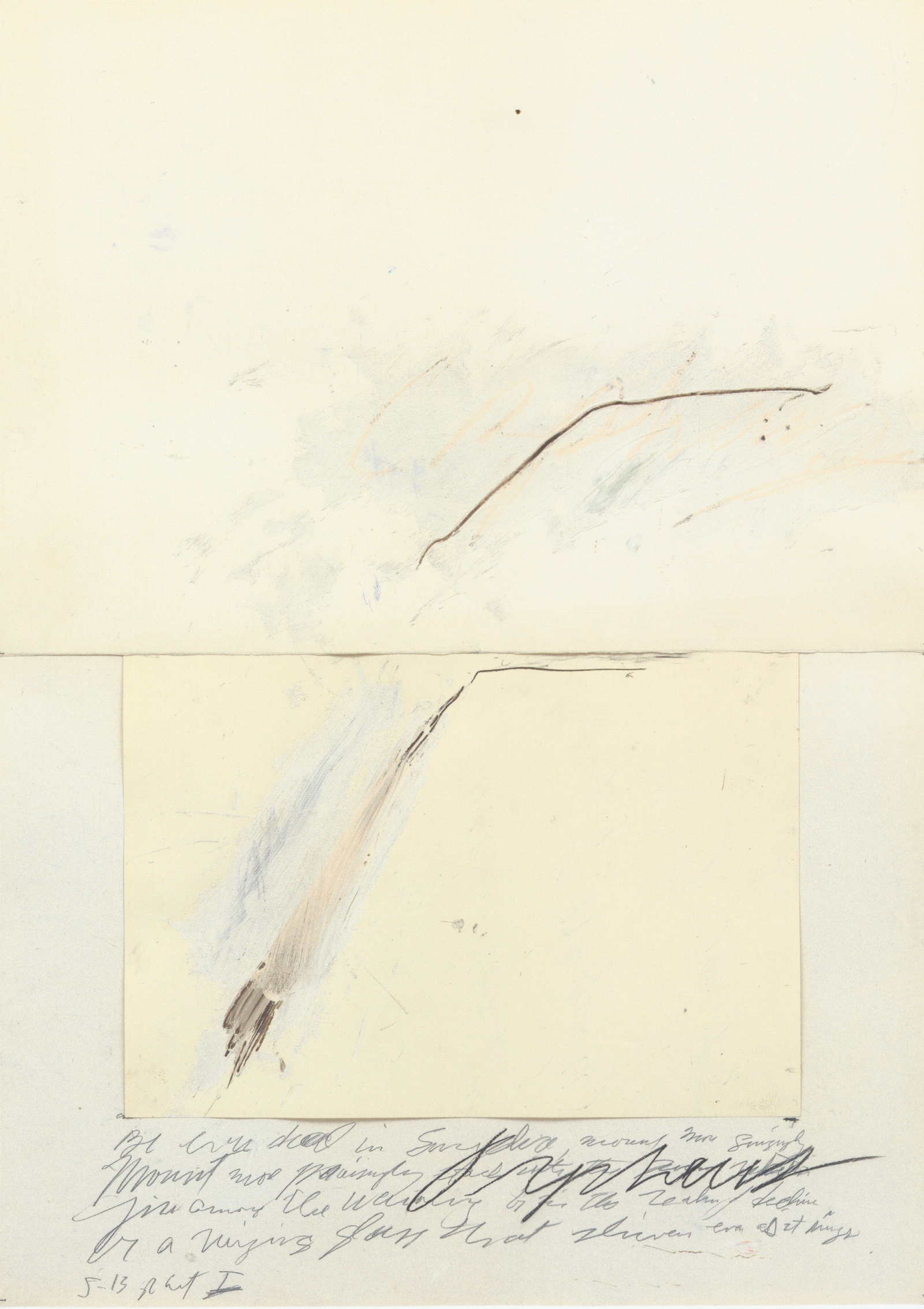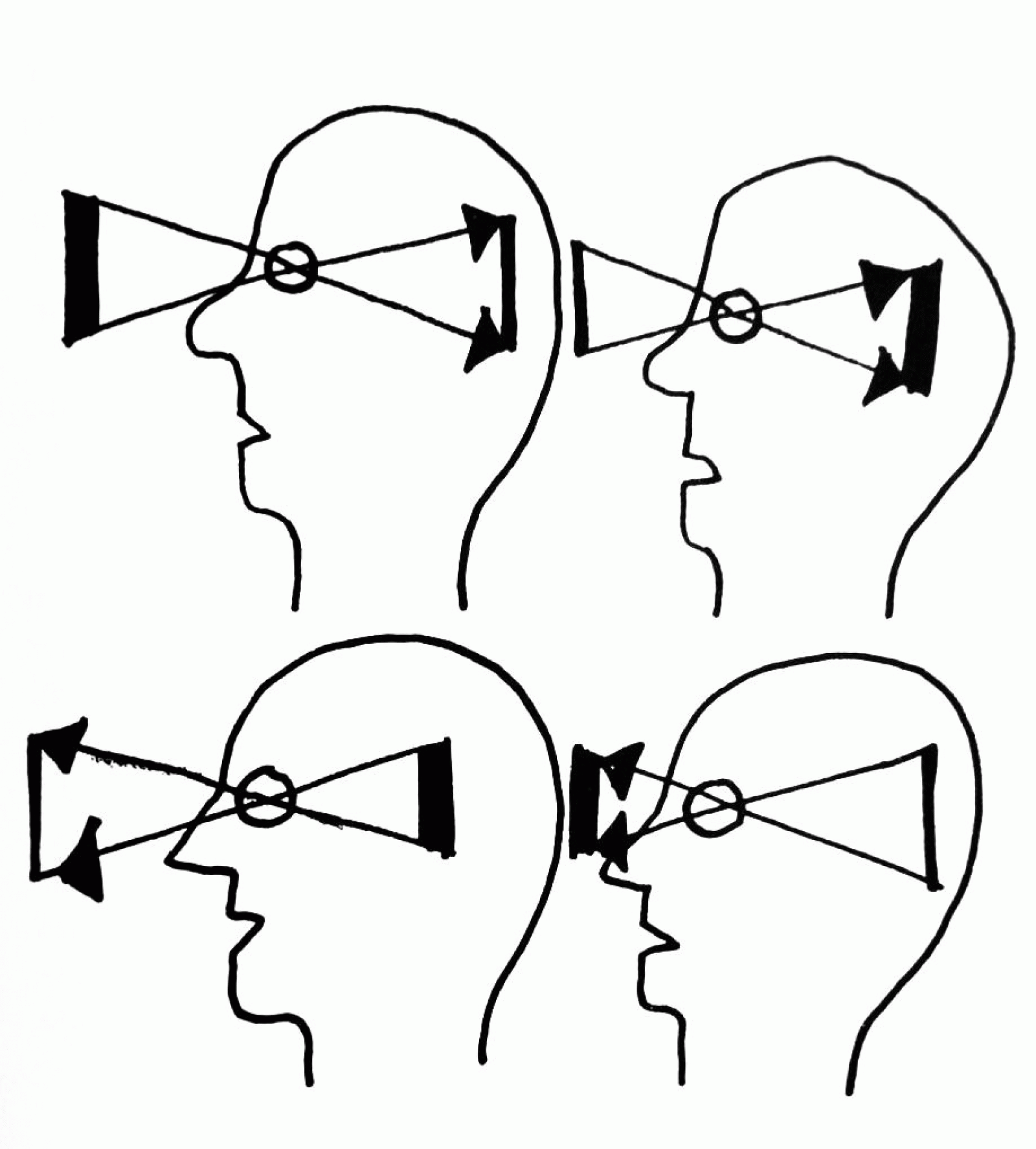Vortrag
Anne Eusterschulte: The Turn of the Gaze. Cy Twombly’s Revision of Perception Theory

Cy Twombly, Orpheus 1975, Oil, wax crayon, pencil, staples, and collaged paper on paper, 140,9 x 100 cm), Cy Twombly Foundation
In his studies on Cy Twombly, the philosopher Roland Barthes has emphasized the gestural, trace-like nature of Twombly’s drawings, an écriture of the body that repeatedly breaks and remains on a threshold. The spectator is drawn into a ‘theoretical’ process on this liminal sphere. In his literary-aesthetic writings Barthes repeatedly recalls Orpheus, "the mythical hero of theory". The artist Cy Twombly has dedicated a cycle of painterly drawings to the mythical figure of Orpheus, allusions to a conversion, a threshold between appearance and loss. The lecture will put Barthes' reflections into dialogue with Twombly's Orpheus cycle and ask for a painterly concept of ‘theoria’ as a sensual-material experience: the turn of the gaze.
Anne Eusterschulte is Professor of History of Philosophy at Freie Universität Berlin. Her research areas include intellectual history, aesthetics, and the intersections of philosophy, literature, and the arts. She also works on social philosophy, including medieval and early modern studies, as well as contemporary approaches in the field of critical theory. Among her publications are the volumes Gratia. Mediale und discursive Konzeptualisierungen ästhetischer Erfahrung in Mittelalter und Früher Neuzeit (co-edited with U. Schneider, Harrassowitz 2018) and Theodor W. Adorno: Ästhetische Theorie. Klassiker Auslegen, DeGruyter 2021 (co-edited with S. Tränkle). She is also one of the editors in chief of the critical edition of the complete works of Hannah Arendt. (Berlin 2020 ff.)
The lecture will take place online via Zoom. The registration is free, but mandatory. Please register at the following address:
https://zoom.us/meeting/register/tJ0tduGrqDIsG9xEmK601bXjP7r27lm0KKDb
This talk is part of the Lecture Series Theoria. From Perception to Art Historical Methods (organised by Hannah Baader and Hana Gründler)
The lecture and seminar series Theoria. From Perception to Art Historical Methods is dedicated to a critical analysis of contemporary theoretical perspectives in art history and a reframing of the concept of theoria itself. In its original sense, the Latin word theoria and its Greek etymon θεωρία meant observation or even contemplation of an object or an event, and was thus inextricably linked to the very act of seeing. However, in modern formations of theory the importance of visual perception is often neglected, and opposed to the exortion of principles of abstraction and rationality.
This series invites reflection on the historical and semantic horizons of theoria as well as the methodological-systematic implications of theory in the field of visual studies. The questions that arise are manifold: How should the relation between seeing and theory be (re-)defined? What is the position of the spectator within and without those spaces that open up for theoretical reflection? How strict is the juxtaposition of theoria and praxis? And last but not least, is it not time to critically reflect upon the practice of theory itself in art history and beyond?
Single case studies as well as general methodological considerations from all fields of art history and neighbouring disciplines will help to foster a differentiated understanding of an old, yet timely topic.

MUNDUNCULUM: Ein tentatives Logico-Poeticum, dargestellt wie Plan und Programm oder Traum zu einem provisorischen Mythebarium für Visionspflanzen. BAND 1: Das rot’sche VIDEUM. Dumont Schauberg: Köln 1967, S. 203.
Hinweis
Diese Veranstaltung wird durch Fotografien und/oder Videoaufnahmen dokumentiert. Falls es nicht Ihre Zustimmung findet, dass das Kunsthistorische Institut in Florenz Aufnahmen, auf denen Sie erkennbar abgebildet sein könnten, für die Veranstaltungsdokumentation und Öffentlichkeitsarbeit (z.B. Social Media) verwendet, bitten wir um eine entsprechende Rückmeldung.


